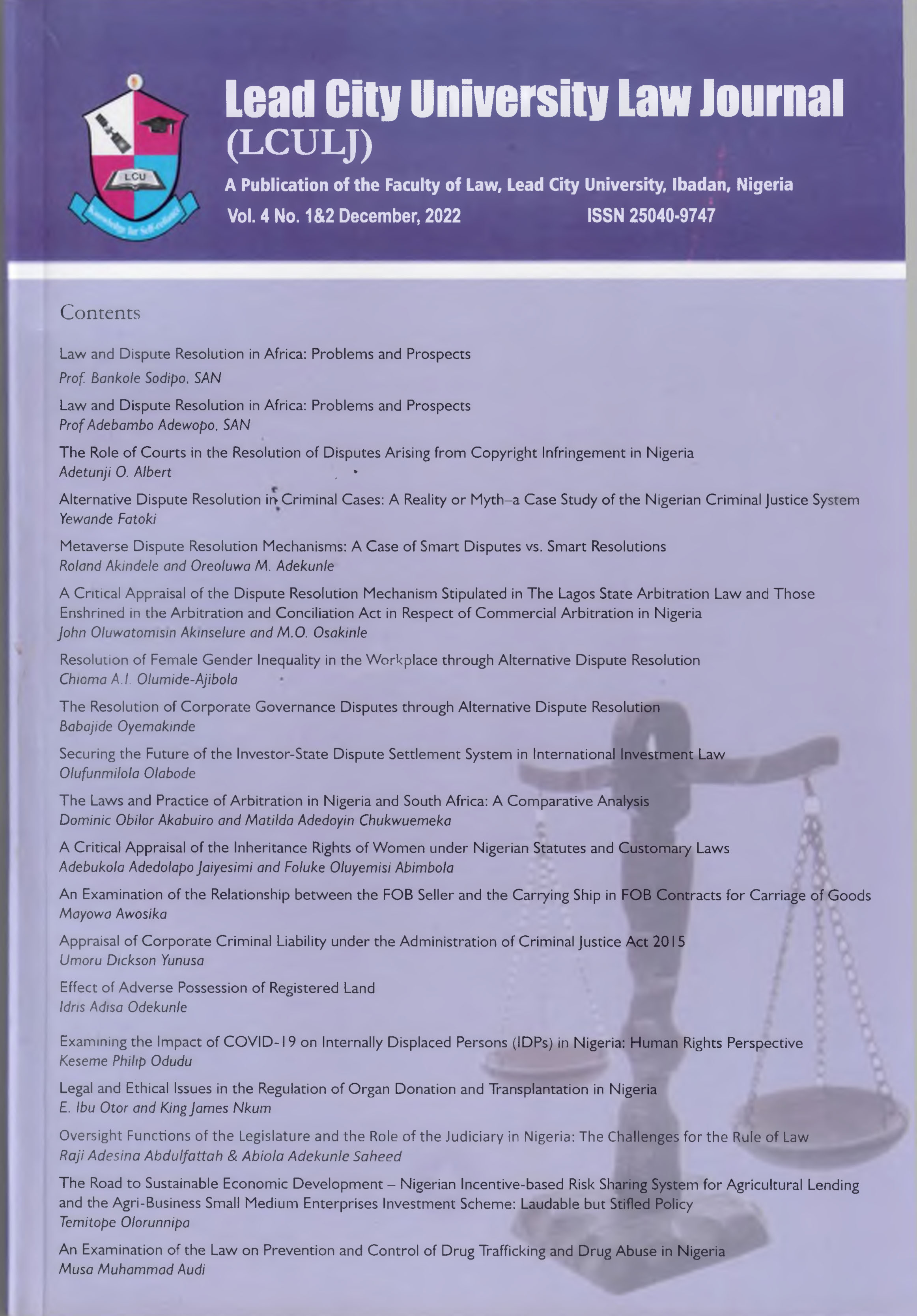SECURING THE FUTURE OF THE INVESTOR-STATE DISPUTE SETTLEMENT SYSTEM IN INTERNATIONAL INVESTMENT LAW*
Keywords:
ISDS System, Investment treaties, Stakeholders, Multi;ateral investment court, dispute settlementAbstract
The Investor-State Dispute Settlement (ISDS) system is presently at a watershed moment, calling
for a need to appraise the entire system and consider its (continued) relevance in Investment
Treaties and even International Investment Law (IIL) in general. The ISDS mechanisms embodied
in most investment treaties provide rights to foreign investors to seek redress for damages arising
out of alleged breaches of investment-related obligations by host governments. The use of
international arbitration to resolve investor-state disputes has increased dramatically over the
past two decades. According to UNCTAD’s July 2022 Report on Investor-State Arbitration, as at
the end of 2021, the total number of publicly known ISDS claims is 1,190. Many developing
countries, after a long "honeymoon" with foreign investors, have been re-considering the pros and
cons of the ISDS mechanism and have become more cautious in their negotiations of international
investment agreements. This paper argues that a complete abandonment of the ISDS system
instead of working on its reform would be a case of throwing the baby out with the bath water. It
is further argued that radical proposals such as the multilateral investment court and a return to
the state-state dispute settlement, to overthrow the established ISDS system are ill-advised as they
do not guarantee a fair dispute settlement system. There should be more focus on incremental
reforms on the existing ISDS by addressing the concerns raised by the stakeholders in the
investment regime. This paper is predominantly analytical as it is based on an extensive review of
the relevant literature in international investment law.

